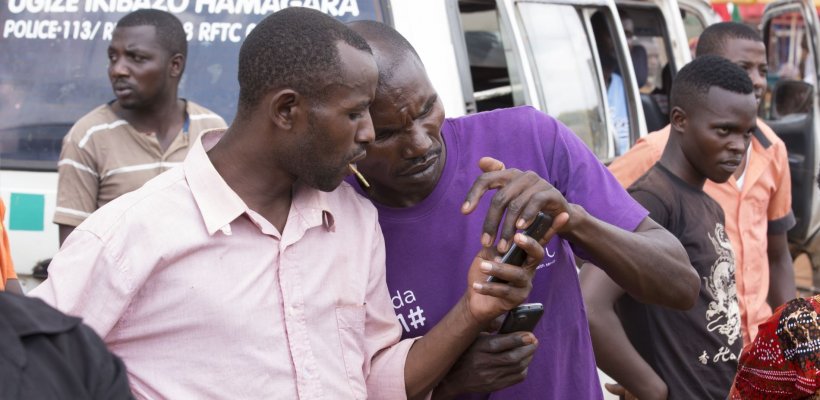
Image source: Babyl
News • Primary care cooperation
Rwanda's ambitious aims for digital health
A partnership between the Rwandan government and Babyl, the country's largest digital health service provider, creates the framework for Rwanda's ascent to be a world leader in digital health.
The partnership will allow people over the age of 12 to have a consultation with their doctor or nurse through their phone within minutes. They will be able to receive prescriptions, lab requests and referrals. This partnership will use a digital-first approach to create Africa’s first universal primary care service. Many countries across the world are coping with long delays for appointments with a family doctor. Rwanda is the world’s first country to offer digital appointments to virtually everyone, helping to reduce queues and the need for travel. Dr Daniel Ngamije, Minister of Health in Rwanda, said: “We are delighted to have this partnership with Babyl who will work alongside all our health institutions and RSSB (Rwanda Social Security Board) to deliver this innovative digital healthcare service. Increasing access to our doctors will help stop self-diagnosis and self-medication which lead to longer-term complications. With the reduced burden on health centres and other medical institutions, our medical professionals will be able to spend more time and resources on the most serious medical cases, further increasing the quality of healthcare delivery across the country.”
The system uses text messages and voice calls so that it can be used as widely as possible, even on phones with limited multimedia and internet capabilities. Patients will get greater control over their own health, faster treatment and fewer trips to health facilities. An earlier service run by Babyl, launched in 2016, already has over 2 million registered users, has delivered over 1 million consultations and is delivering 3,000 more every day.
Digital healthcare is a significant step towards ensuring that all our members can conveniently access doctors without fear of loss of income or worry about travel to a medical institution
Regis Rugemanshuro
Dr Ali Parsa, Founder and CEO of Babylon, said: “We are so proud to be helping make Rwanda a world-leader in digital health, and so humbled that the Government of Rwanda chose Babylon to help its ambition to provide universal primary care to all its citizens. Rwanda is showing the world how we can sustainably tackle the challenges in healthcare, and make it accessible and affordable for all.” The health service includes the creation of Electronic Medical Records (EMR) which are expected to improve record-keeping, information sharing, reduce duplication and lead to cost savings from improved health outcomes at patient and population levels.
Clare Akamanzi, CEO of the Rwanda Development Board, said: “Babyl’s investment in Rwanda contributes to Rwanda’s National Strategy for Transformation, particularly ensuring access to quality health for all, and establishes Rwanda as a globally competitive knowledge-based economy by reinforcing partnerships to build skills with practical applications in health.”
Regis Rugemanshuro, Director General of RSSB, said: “RSSB strives to increasingly deliver a comprehensive social security package that addresses all social security needs of all Rwandans. Digital healthcare is a significant step towards ensuring that all our members can conveniently access doctors without fear of loss of income or worry about travel to a medical institution. Early intervention with easier access to healthcare will also reduce the burden on our universal healthcare scheme.”
Shivon Byamukama, CEO of Babyl Rwanda, said: “The people of Rwanda are supportive of this country’s forward-thinking vision and 98% of patients say they recommend Babyl and will use it again. The Bill & Melinda Gates Foundation helped us set up this service and enabled Rwanda to demonstrate what’s possible and sustainable, now Rwanda can show the world how healthcare should be done.”
Source: Babyl
06.03.2020





